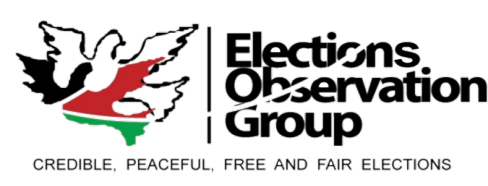Introduction to ‘Foundations of Democracy and Governance’

Announcement: Introduction to "Foundations of Democracy and Governance" Course Dear Students, We are excited to announce the launch of our new course, "Foundations of Democracy and Governance." This course is designed to provide you with a comprehensive understanding of the principles, institutions, and practices that underpin democratic systems around the world. In this course, you will explore key concepts such as the rule of law, political participation, civil liberties, accountability, and transparency. You will learn about the role of democratic institutions, including the legislature, executive, judiciary, electoral bodies, and civil society organizations. Additionally, you will examine the challenges facing democracy and governance today and explore strategies for promoting and strengthening democratic systems. Whether you are a student interested in political science, law, international relations, or simply a concerned citizen eager to understand how democracies work, this course is for you. Through engaging lectures, interactive discussions, and thought-provoking assignments, you will gain valuable insights into the foundations of democracy and governance. We invite you to join us on this journey as we delve into the fundamental principles that shape our societies and empower us as citizens. Together, let us explore the importance of democracy, the challenges it faces, and the opportunities for positive change. Enrollment is now open, and classes will begin [insert start date]. Don't miss this opportunity to deepen your understanding of democracy and governance. Register today and embark on a journey toward informed citizenship and active engagement in democratic processes. For more information and to enroll, please visit [insert enrollment link]. We look forward to welcoming you to the "Foundations of Democracy and Governance" course! Sincerely, Eustace Kinyua Ndiga Electoral Processes Officer
Units
-
1Module 1: Introduction to Election Administration
Understanding the significance of elections in democratic societies Overview of the electoral cycle and key stages of election administration Legal frameworks and constitutional provisions governing elections
-
2Module 2: Election Authorities and Institutional Structures
Roles and responsibilities of election management bodies Structure and composition of election commissions/boards Independence, impartiality, and accountability of election authorities
-
3Unit 3: Accountability and Transparency
Government Accountability: Mechanisms for holding government officials accountable (e.g., elections, oversight bodies). Importance of transparency in government decision-making and administration. Examples of accountability mechanisms in action. Role of Civil Society: Definition and importance of civil society organizations. Functions and impact of NGOs, advocacy groups, and grassroots movements. Case studies highlighting the role of civil society in promoting democracy and good governance. Media and Democracy: Importance of a free and independent media in democratic societies. Challenges facing media freedom and integrity. Strategies for promoting media literacy and combatting misinformation. This curriculum outline provides a structured approach to teaching the foundations of democracy and governance, starting with an introductory guide and covering key units to provide students with a comprehensive understanding of democratic principles, institutions, and practices.
After Intro
Democracy is a system of government in which power is vested in the hands of the people, either directly or through elected representatives. It is important because it ensures that governments are accountable to the people, protects individual rights and freedoms, and fosters political participation and civic engagement.
The key principles of democracy include the rule of law, political participation, protection of civil liberties and human rights, accountability and transparency, separation of powers, free and fair elections, an independent judiciary, vibrant civil society, decentralization, and adherence to democratic values and norms.
Democratic institutions, such as the legislature, executive, judiciary, electoral bodies, and local governments, have distinct roles and responsibilities. They operate within a framework of checks and balances to ensure that no single institution becomes too powerful and that government actions are consistent with democratic principles.
Citizens play a crucial role in democracy by exercising their rights and responsibilities, participating in political processes, holding government officials accountable, and contributing to the development and maintenance of democratic institutions and practices.
Accountability in a democratic system is achieved through mechanisms such as elections, oversight bodies, transparency in government actions, freedom of information laws, and the active engagement of civil society. These mechanisms ensure that government officials are held responsible for their actions and decisions.
Challenges to democracy and governance include corruption, authoritarianism, erosion of civil liberties, electoral fraud, polarization, disinformation, inequality, weak institutions, and threats to media freedom. Addressing these challenges requires sustained efforts to strengthen democratic institutions, promote civic engagement, and uphold democratic values.
Individuals can promote democracy and good governance by staying informed, participating in elections and civic activities, advocating for policy changes, supporting civil society organizations, defending human rights, promoting dialogue and tolerance, and holding government officials accountable for their actions.
There are many resources available for further learning about democracy and governance, including books, academic articles, documentaries, online courses, research institutes, non-governmental organizations, and government publications. Some recommended resources include "The Global State of Democracy" by the International Institute for Democracy and Electoral Assistance (IDEA) and "Democracy: A Reader" edited by Larry Diamond and Marc F. Plattner.
There are several ways to get involved in promoting democracy and governance globally, including volunteering with international organizations, participating in advocacy campaigns, supporting democracy-building initiatives, engaging in research and policy analysis, and promoting democratic values and norms in your personal and professional life.
Productivity Hacks to Get More Done in 2018
— 28 February 2017
- Facebook News Feed Eradicator (free chrome extension) Stay focused by removing your Facebook newsfeed and replacing it with an inspirational quote. Disable the tool anytime you want to see what friends are up to!
- Hide My Inbox (free chrome extension for Gmail) Stay focused by hiding your inbox. Click "show your inbox" at a scheduled time and batch processs everything one go.
- Habitica (free mobile + web app) Gamify your to do list. Treat your life like a game and earn gold goins for getting stuff done!
